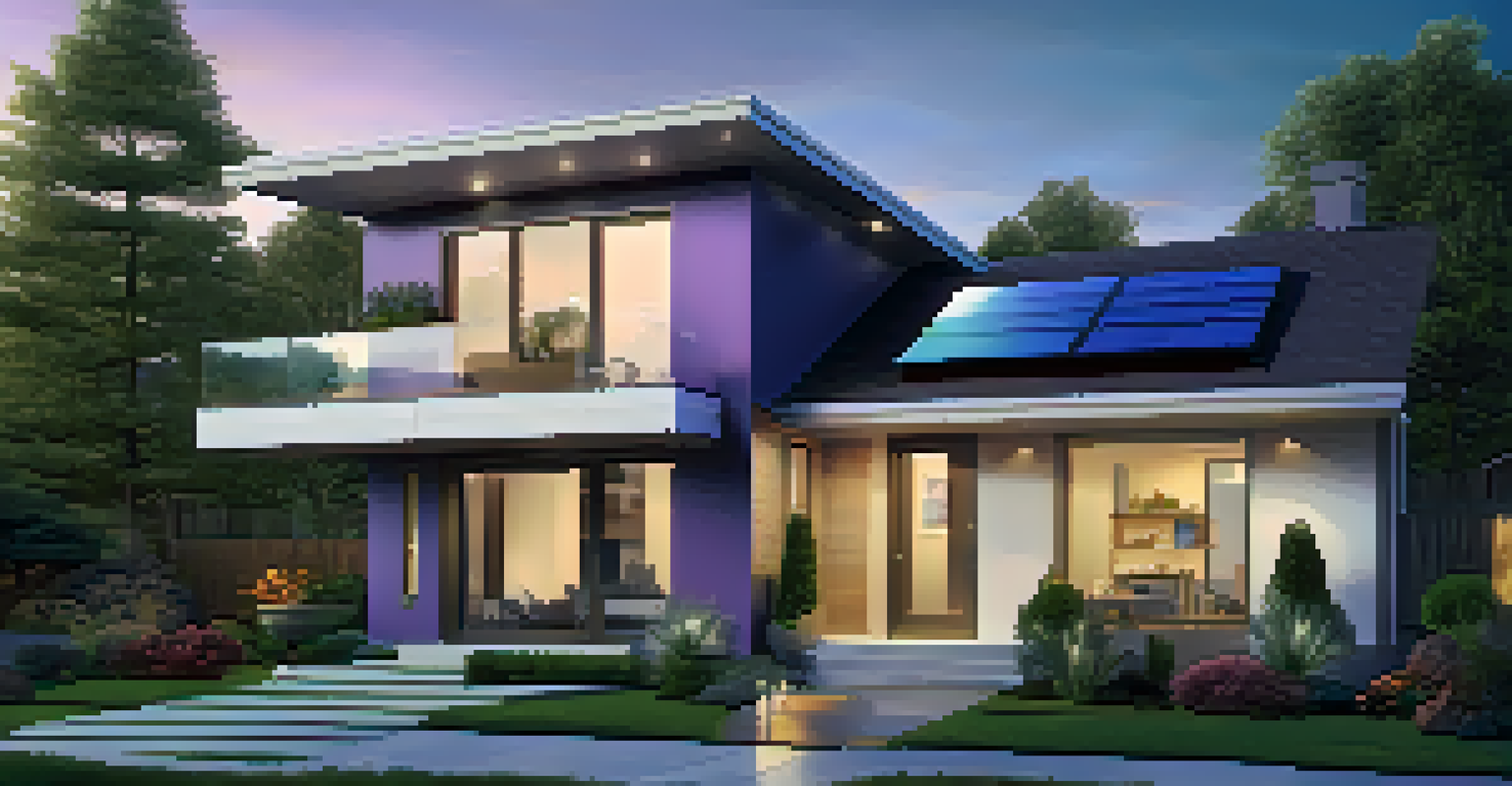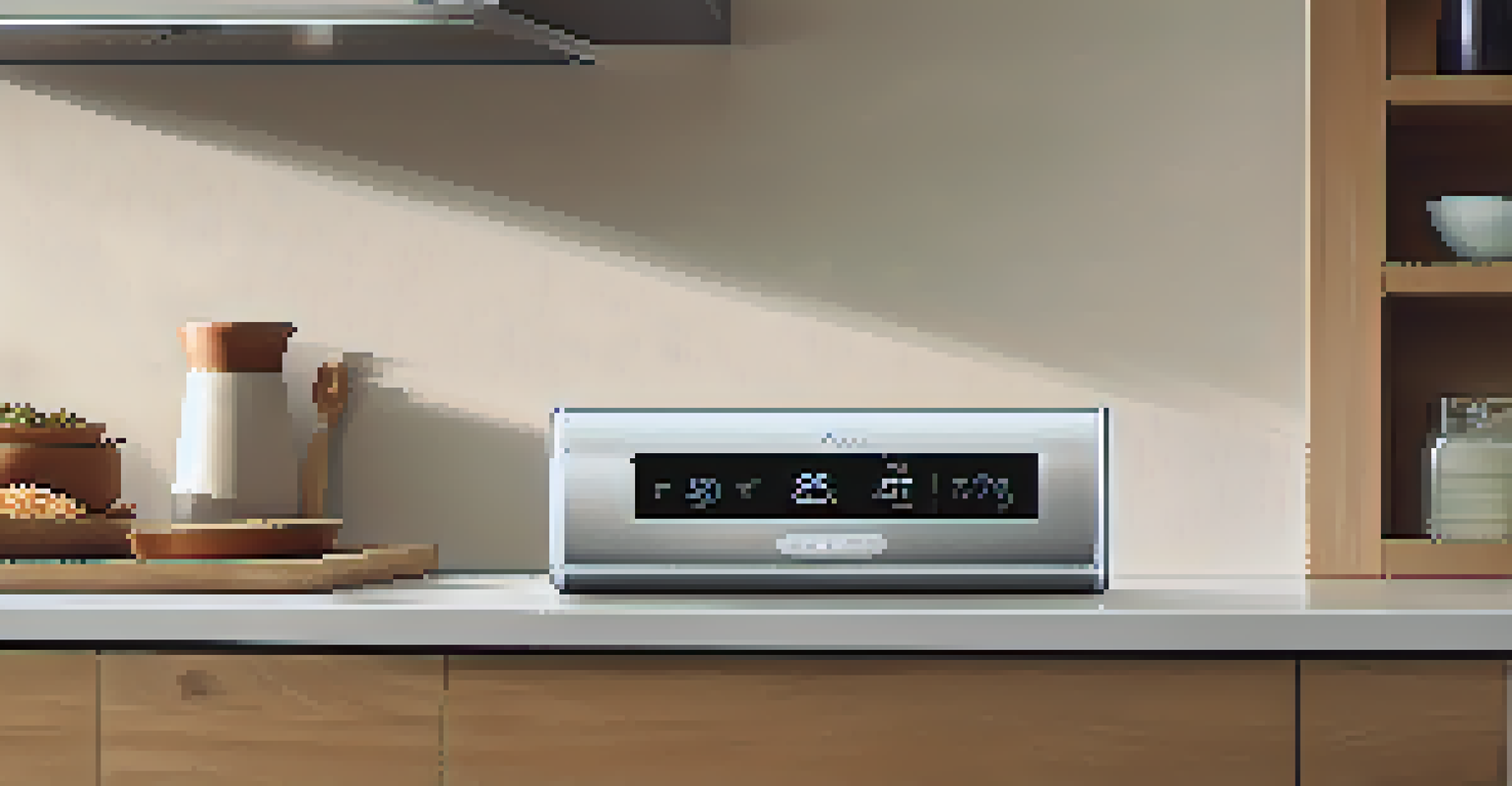The Future of Smart Homes in Real Estate Market Trends

What Are Smart Homes and Their Growing Popularity?
Smart homes integrate technology to enhance living experiences, allowing homeowners to control lighting, security, and even appliances through their smartphones.
The future is already here – it's just not evenly distributed.
With advancements in Internet of Things (IoT) technology, more people are seeking homes equipped with smart features, making them more attractive in the real estate market.
As consumers become increasingly tech-savvy, the demand for smart homes is expected to rise, prompting builders and developers to incorporate these features into new properties.
Key Features Driving Smart Home Demand
Smart thermostats, security systems, and lighting controls are some of the most sought-after features in smart homes, as they offer convenience, energy efficiency, and enhanced security.

For example, a smart thermostat can learn your schedule and adjust the temperature accordingly, helping to save money on energy bills while keeping your home comfortable.
Smart Homes Boost Property Value
Homes equipped with smart technology often sell at higher prices and attract more buyers, making them increasingly desirable in the real estate market.
These features not only provide immediate benefits to homeowners but also increase property value, making homes equipped with smart technology more desirable.
Impact of Smart Homes on Property Value
Properties with smart home technology often sell at higher prices compared to traditional homes, thanks to the added convenience and modern appeal.
Technology is best when it brings people together.
Research shows that listings highlighting smart features tend to attract more buyers, leading to quicker sales and potentially bidding wars.
As the trend continues, homes without smart technology may struggle to compete in the market, emphasizing the importance of innovation in real estate.
Smart Home Technology and Sustainability
Sustainability is a growing concern for many homebuyers, and smart home technologies can play a significant role in reducing energy consumption.
Devices like smart meters and energy-efficient appliances help homeowners monitor their usage and make informed decisions, leading to a smaller carbon footprint.
Sustainability Drives Smart Demand
Smart home technologies contribute to energy efficiency, appealing to environmentally-conscious buyers and reducing overall consumption.
As the real estate market shifts toward eco-friendly solutions, integrating smart technology will become increasingly essential for developers aiming to attract environmentally-conscious buyers.
The Role of Real Estate Agents in Promoting Smart Homes
Real estate agents are key players in the smart home trend, as they need to stay informed about the latest technologies to better serve their clients.
By understanding and promoting smart home features, agents can highlight the benefits and potential savings for buyers, making properties more appealing.
Agents who embrace smart technology not only enhance their own marketability but also help their clients make informed decisions in an evolving landscape.
Challenges in the Smart Home Market
Despite the growing interest in smart homes, several challenges remain, including concerns about compatibility, security, and privacy.
Many homeowners worry that different smart devices may not work well together, leading to frustration and an incomplete smart home experience.
Agents Need Smart Home Knowledge
Real estate agents who understand and promote smart home features can better serve clients and enhance their marketability in a tech-driven landscape.
Additionally, as smart home devices collect personal data, potential buyers often seek reassurance about the security measures in place to protect their information.
The Future of Smart Homes in Real Estate
Looking ahead, the integration of smart home technology in real estate is likely to become even more prevalent as consumer expectations evolve.
Emerging technologies, such as AI and machine learning, will further enhance the capabilities of smart homes, providing users with more personalized experiences.

As these advancements continue, the real estate market will need to adapt, ensuring that properties meet the demands of future homeowners.
Conclusion: Embracing the Smart Home Revolution
The smart home trend is reshaping the real estate market, offering numerous advantages for both buyers and sellers alike.
As technology continues to advance, those in the real estate industry must prioritize smart features to remain competitive and meet consumer demands.
Embracing the smart home revolution is not just about staying current; it's about enhancing the quality of life for homeowners and ensuring a sustainable future.